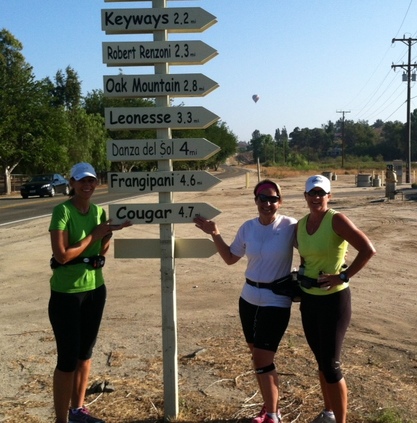
Now, maybe I have avoided this subject because this is such a huge area of growth for me, or maybe I am just coming to the realization of how truly important sleep is to making my body a healthy machine. Whatever the reason, I am realizing that the more I train, the more I need to work on getting an adequate amount of sleep each night. It might be my imagination, but lately every time I open a magazine, read a blog, or watch the Today Show it seems like they are talking about the exact topic that I am choosing to write about this week. It could be that I am just more aware of the subject, or maybe someone is trying to tell me something--I need to get more sleep!
I would like to share the best resources that I have come across on the subject of why we all need to be thinking more about the amount of sleep we get each night. I think the easiest one to understand is the resource I found on the Crossfit Inland Valley website. If you click on this link, Sleep Deprivation: The Cousin of Death, and then click on the graphic to the right (I clicked on it a second time to make it larger for my old eyes) you will see a concise representation of why sleep is important, the specific effects it has on our health, and even some tips for how to fall asleep at night. For those of you that only read my blog to make me happy and don't want to have to read anything else, I will discuss the important points below:
While the average American only gets 5-7 hours sleep each night, our bodies need 7-9 hours (I assume the overlap is for people like me who really need 8 hours to feel fully rested). The danger zone is when we only allow our bodies five or fewer hours of sleep each night. In this zone we are more at risk for diabetes, heart attack, and just generally at a greater risk of death.
Part of this higher risk of death may be because this sleep deficit really affects our brain and its ability to function properly. You can experience anything from difficulty thinking logically, a harder time learning new tasks, vision and speech problems, and decreased ability to think creatively (although most people would not notice any difference if my imagination were impaired).
I think one of the scariest things that results from being sleep deprived is your impaired driving ability. I remember once driving from my house in Sierra Madre back to college at UCSD when I was running on about four hours sleep over a two-day period. My eyes kept closing. I tried opening the car window, turning the air conditioning on high, and at one point I even tried holding an eye open with one hand while I steered with the other (and, yes, I realize it makes it appear I was not smart enough to attend UCSD with this kind of problem solving ability). I finally had to pull into a rest step because luckily I had enough brain activity left to realize I was going to hurt someone if I kept going. Because of this experience, I can totally understand how drowsiness can be nearly as dangerous as drunk driving.
Another affect that sleep deprivation can have is that it impairs our ability to make good food choices. The more tired we are, the less likely our bodies are to sense that we are full. In addition, it simulates our hunger response, which leads to cravings for food (like unhealthy carbohydrates) and may even cause you to store more fat. "Being sleep deprived means that you’re more likely to make poor choices about which foods you eat and how much of them you consume, especially in the hours after dinner when elevated cortisol has you 'tired but wired'" (from Sleep: An Undervalued Ergogenic Aid by Dallas Hartwig--this can be accessed from the above link).
One important thing that our bodies do while we sleep is to repair themselves from the stress we put on them during the day. If we are not getting enough sleep, we are not allowing our bodies the time they need to heal. So when I spend more time exercising and less time sleeping, I am actually increasing the chances that I will get injured, thereby setting me behind in my training schedule (a true Catch-22).
So here is my quandary--there are only so many hours in a day, and for the next year I need to not only go to work each day at my full time job (and tutor the seven kids on my caseload), spend quality time with my husband and children, find time for my friends, and somehow get in at least two hours a day training on weekdays and even more on the weekends. It is going to be a delicate balancing act for sure.
Often my problem is not that I do not try to get sleep, I just have difficulty falling asleep in the first place--I can be a terrible insomniac when things get too hectic. The good news is that there are some suggestions for how we can make the most of the hours we have allowed for sleep.
First, if you plan for eight or more hours of sleep, even if it takes you a while to wind down, hopefully you will still be able to get in that seven hour minimum of sleep. If you plan for seven, it is likely you will consistently get less than that amount. In addition, try to go to bed and wake up at a similar time each night. This will train your body to set its natural Circadian Rhythm--I know this one works because of my experience of getting up early to train. This summer I have often been getting up anywhere between 4:30 and 5:30am so I can meet my training buddies. Now my body regularly wakes me up right before my alarm is about to go off. On the negative side, when I had to take a few rest days because I strained some muscles by over training, my body still woke me up between 4:30 and 5:30am--no rest for the weary.
Once you have set a consistent bedtime and wake up time, there are some things you can do in the hours before you hit the sack that will make it more likely that you will not toss and turn for hours before you fall asleep. You may want to take a nice warm bath to relax your body (I guess my mom knew what she doing when she made me take a bath every night, and I just thought she was a clean freak). Turn off all electronics like your television and computer, dim the lights, and try doing calming activities like listening to soothing music or reading a book. Finally, try to avoid caffeine, especially in the hours before your bedtime, as it will cause you to have difficulty falling asleep. It will also inhibit your production of melatonin and will lead you to feel sluggish in the morning. About an hour before bed avoid simulating activities like exercise, as they will make it more difficult for you to calm your body enough to fall asleep (see tip above and consider a hot bath instead).
So, now that I understand how important sleep is, understand the negative effects of not making it a priority, and even understand some things I can do to make it more likely that I can easily fall asleep at night, I need to make a plan for actually following through on this. My thinking is that if I go to bed early, somewhere around 8:00, and get to sleep by 9:00, even if I get up at 4:30 or 5:00am to train, I will still get at least seven hours of sleep. And if I get Eoin in bed early with me, he will be better prepare to tackle his first year in kindergarten. I need to teach him early that sleep is key to a healthy lifestyle, because right now he sees it as a punishment. So now that I am consistently taking my supplements and have a plan to make sleeping a priority, hopefully I will be able to train, stay healthy and injury free, and maybe even have some much needed "grouchy-free" time with my friends and family. And friends, if you really want to spend some quality time with me, join me on my runs, bike rides, or even for a nice long swim--we can always use some support especially on our longer mileage days.
If you want to read more about how sleep fits into the whole "healthy you" equation, click her and read this resource on the Whole9 website: The Whole9 Health Equation
Triathlon Training Update--I finally found my new bike (although it is on layaway until I can pay it off), and I even learned how to change a flat tire I got on my old bike. I took a transition workshop at the shop where I purchased my bike--now I know what I need to do when I change from my swim to the bike and from the bike to my run. I feel better prepared for my swim now that I can do 100m without feeling like my chest is going to explode from air deprivation, and I even swam 600m without stopping. I will be doing a 500m ocean swim for my sprint triathlon on 8/4, so hopefully I will be able to complete the swim without drowning. Tomorrow I will go on a long bike ride, however, since I do not have my new bike I will be training and doing my first triathlon on a heavy hybrid bike. I guess it can only go up from here.

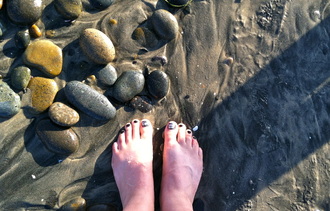

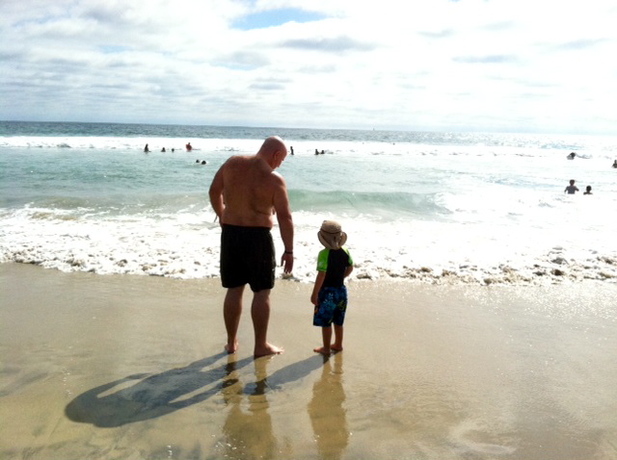
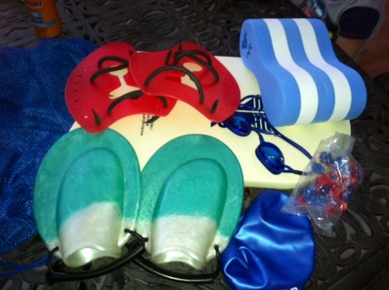
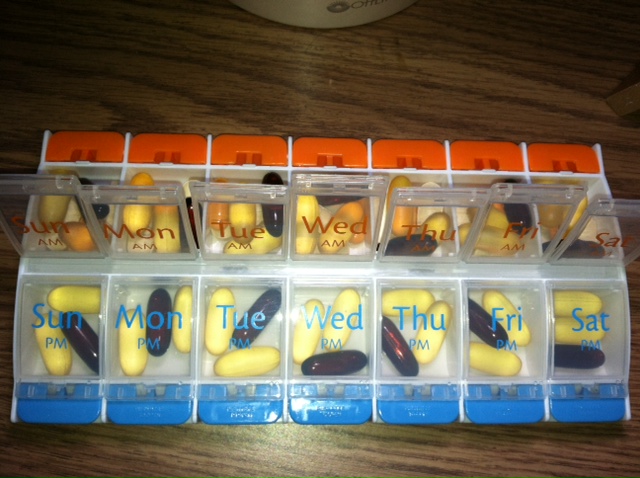

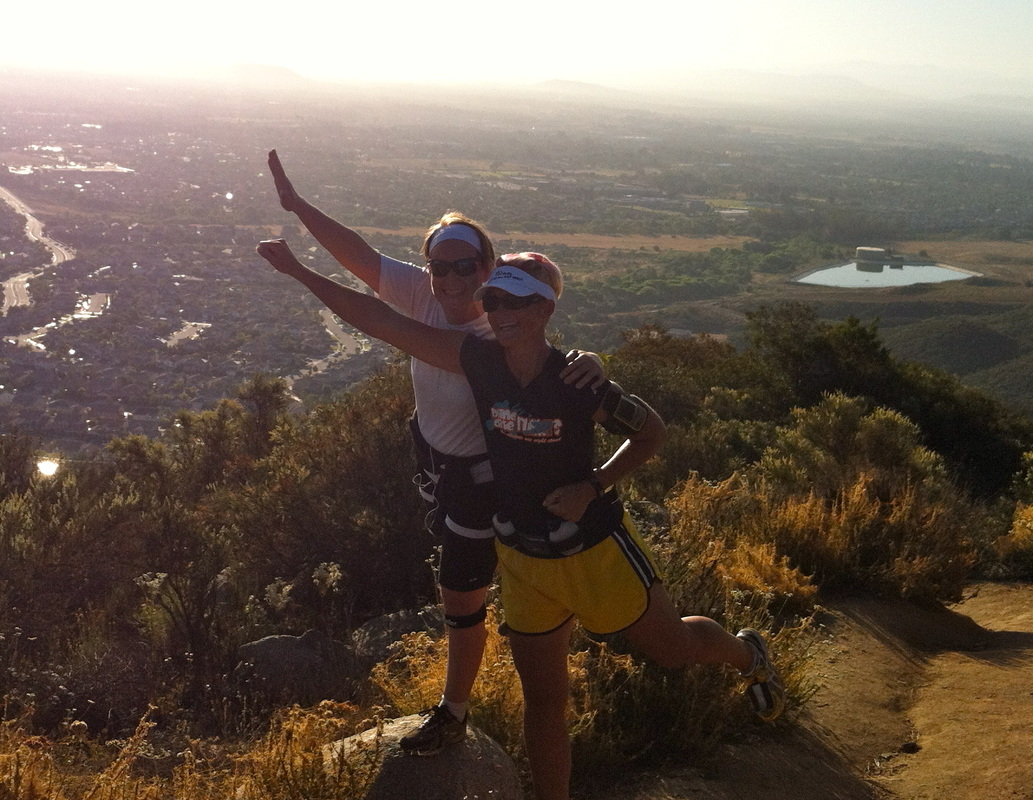
 RSS Feed
RSS Feed
